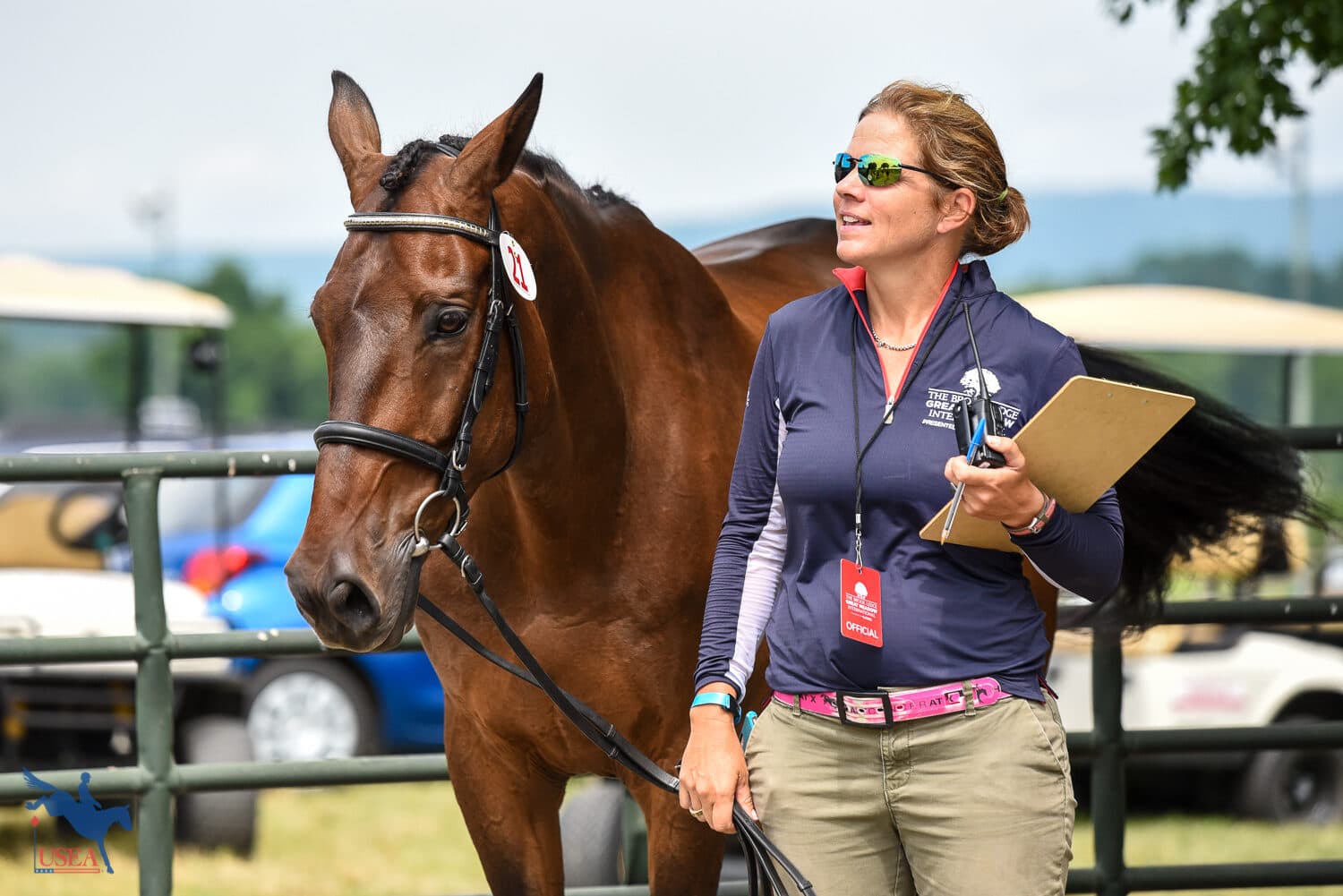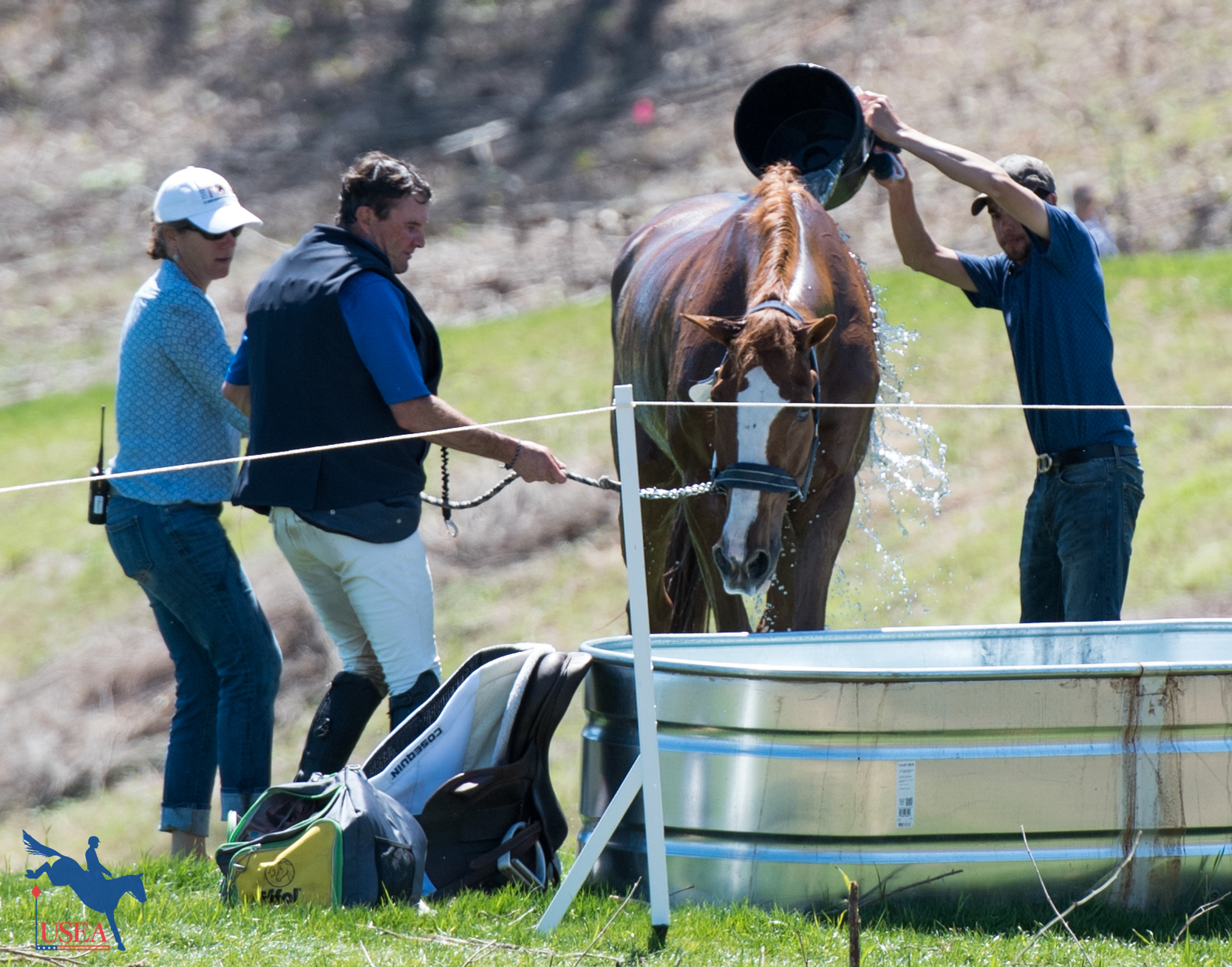Tips and Tricks from the Max Corcoran Clinic

While there are approximately 213 takeaways from Max Corcoran’s seminar, this was the number one lesson learned. Always have baby powder on hand.
The Maryland Horse Trials have become synonymous with Carolyn Mackintosh’s picturesque The Highlands at Loch Moy Farm. Mackintosh invited Corcoran to the farm for a series of event horse management clinics, the first of which took place during their second horse trials of July. Corcoran has a lengthy list of accomplishments, including grooming for the O’Connor Event Team at every major championship and Olympic games for 11 years and is currently stepping into the role of USEA President. Six of us horse enthusiasts gathered to listen and glean information from Corcoran for four hours. The various topics included alternative therapies, basic first aid, nutrition, cross-country aftercare, and tips and tricks.
Keep a journal, a calendar, a list of goals, for the week, month, and year. Know what you're working towards and work backward, taking into account shows, events, rest periods, vaccines, shoeing, therapies, conditioning, and lessons. She emphasized the importance of rest, both for your equine partner and yourself. Even one to two weeks off can be beneficial mentally and physically. Unless you have a Thoroughbred, then you might need to hack the beast a few times so they don’t get bored and find even more ways to injure themselves.
Cross-country aftercare is important. After you successfully cross the finish flags, pull up from your gallop/canter slowly into a trot, ease into a walk, and keep your horse walking. Have your water buckets ready before you head to cross-country, so you’re not tripping over things while your dripping horse stands there looking at you like, "Come on Mom," (this definitely hasn’t happened to me). Get a bucket or hose on them quickly and start the cooling down process. Once cool, Corcoran likes to give them 20 minutes in the stall or trailer to themselves. Gives them a chance to pee, drink, and eat a snack before you start pestering them for a picture with your ribbon. At the higher levels, icing their legs for 20-25 minutes is encouraged.

Corcoran discussed conditioning, trot sets, and a good weekly riding schedule. Trot sets are cardio for you and your horse. Three sets of trotting at 5 minutes (trot 5 minutes and walk 2-3 minutes = a set) is beneficial. Work to trotting for 15 minutes straight. When training for Beginner Novice, canter sets start at 3 minutes of canter followed by 2 minutes of walk for 2 sets. Focus on your flat training while doing the canter sets - work on shortening and lengthening, sit back and lift them up, find what works to slow them for when you’ll be approaching a fence on course. Same goes for the trot sets, working on leg yields and half halts, changing the pace. For the other levels - Novice: 3 sets of 3 minutes, Training: 3 sets of 4 minutes, Preliminary: 3 sets of 5 minutes. Remember to get out of the ring and go for hacks and do hill work.
Grooming has to be a main focus in your horse care. Have a good curry, hard, medium, and soft brush, hoof pick, comb, and mane/tail brush. Curry, curry, curry. It loosens dirt and brings out the natural oils in the coat. Run your brush through the curry comb to clean it and wash your brushes frequently. Corcoran prefers a comb on the mane and a brush for the tail. Start at the bottom of the tail and work your way up as your brush. If you’re feeling extra particular, comb out their tail with your fingers (she worked for an Olympic rider that only allowed that!)
Corcoran had so many tips and tricks to share. Baby powder! It’s good for white socks, to dry their legs and sweat marks, use it over a poultice or sweat before wrapping. Plus it just smells good. Use witch hazel for scratches and fungus, rubbing alcohol for sweat marks in the winter and face funk in the summer (or baby powder), and apple cider vinegar for hives and to reset their pH if you’ve bathed them one too many times.
Corcoran will be back at Loch Moy Farm on August 18 and September 21 for two more clinics. The topics will include nutrition, packing for a show, horse and rider show turnout, braiding, and making good decisions. Interested in signing up? More information can be found at Loch Moy’s website and at Event Clinics.















